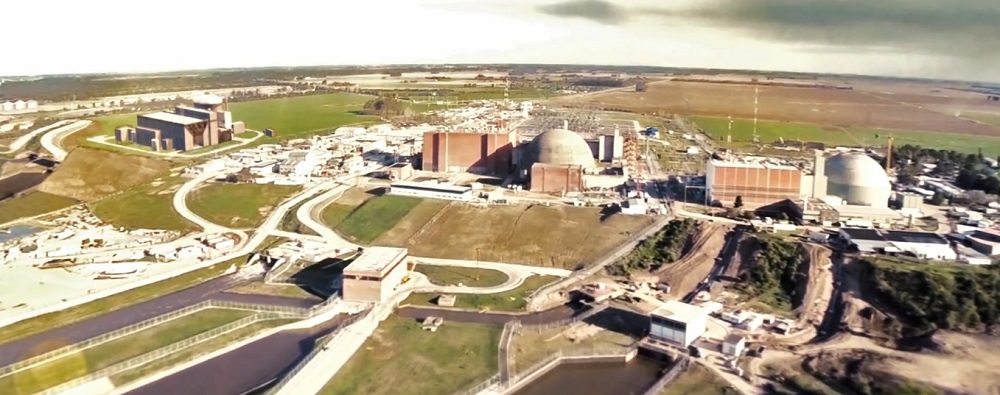China delegation to ‘visit Argentina to discuss N-deal’

Atucha I and II at right; artist’s concept of Atucha III at left. RIght-most unit is Atucha I. Courtesy Nucleoelectrica Argentina S.A.
BUENOS AIRES, Mar 17, 2019, Reuters. A delegation from China will visit Argentina this month to discuss the construction of a nuclear power plant, signaling potential progress in a deal that could increase Beijing’s deepening influence in the South American nation, reported The Japan News.
An Argentine government source told Reuters last week the “technical team” from China would meet with local suppliers about the long-stalled nuclear power plant project, reportedly worth up to $8 billion.
Argentina had hoped to announce an agreement on China-financed construction of Atucha III, as it has been referred to in the past, during a state visit by Chinese President Xi Jinping after November’s G20 summit in Buenos Aires. But the deal failed to emerge then, and in January Argentina’s nuclear energy undersecretary, Julian Gadano, and the ambassador to China, Diego Guelar, met with officials in Beijing for talks about the project, the government source said.
A second government source, in the Foreign Ministry, said talks about the nuclear plant with China were ongoing but added that there had been no “concrete progress” toward signing a deal. If finalized, the nuclear plant would be one of the biggest projects financed in Argentina by China, which has become a key trading partner for Argentina and its biggest non-institutional lender.
The Chinese Embassy in Buenos Aires did not respond to requests for comment and China National Nuclear Corporation, a state-owned nuclear firm that has held talks previously about building nuclear plants in Argentina, declined to comment.
A press officer in Argentina’s nuclear affairs department, which operates under the foreign ministry, said he was unaware of the delegation’s visit.
The power plant deal was first negotiated under the administration of former President Cristina Fernandez, a left-wing populist who left office in 2015 after striking a number of deals with China.